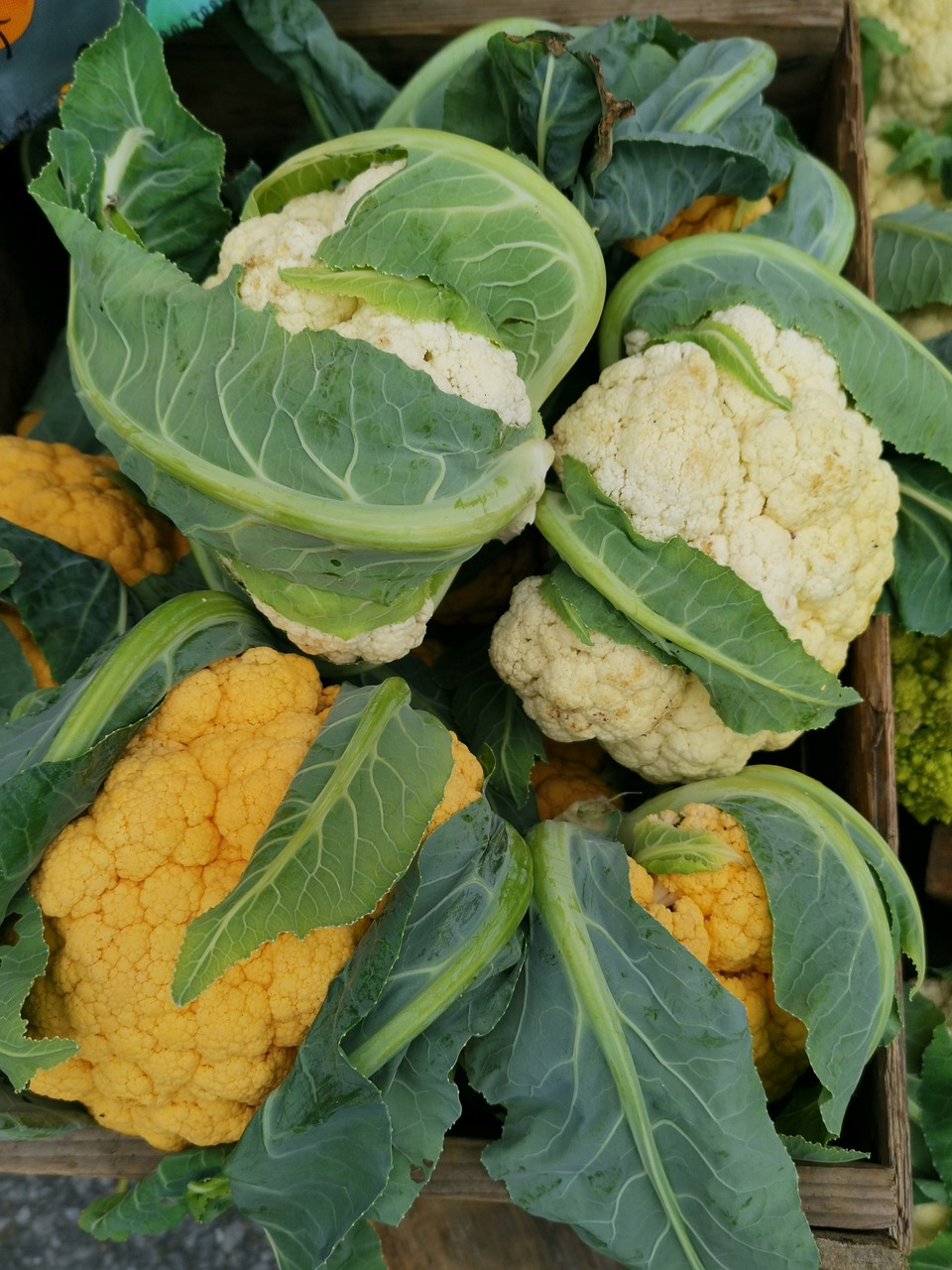
Cauliflower is high in vitamins C, E and K. Vitamin C supports our immune system while vitamin E helps protect cells from damage. Vitamin K helps us make proteins needed for building bones. Cauliflower is also a great source of folate and fiber. Folate helps our cells function properly. Fiber helps keep us regular.
Storing and Choosing Cauliflower
- Cauliflower is in season in October, November, and December.
- The freshest cauliflower is compact and has bright, intact leaves.
- Store cauliflower in a produce bag in the refrigerator. It should last a week before brown spots appear.
Cauliflower Colors
- Cauliflower also comes in purple, green, and orange.
- Purple cauliflower has an antioxidant found in red produce.
- Green cauliflower is a mix of broccoli and cauliflower.
- Orange cauliflower has carotenoids, which gives carrots its color.
How to Add Cauliflower to Your Diet
- Stir fry cauliflower with vegetables and spices.
- Cozy up to cauliflower soup! Roast cauliflower. Then, add it to a sauté of onions, garlic, and vegetable broth.
- Replace white rice with cauliflower rice! (Learn more using the MyPlate recipe below.)
Sautéed Cauliflower Rice
Ingredients
- ½ cup diced onion
- ¼ teaspoon garlic powder
- 1 cauliflower (grate or chop finely, 4-5 cups)
- 1 tablespoon vegetable oil
- ½ teaspoon salt
- ¼ teaspoon pepper
- 1 tablespoon lemon juice (optional)
- 2 tablespoons chopped parsley or cilantro (optional)
Directions:
- In a large pan on medium heat, heat oil. Add onion and cook for 3-5 minutes.
- Add cauliflower, garlic powder, salt, and pepper. Mix for 3-5 minutes or until cauliflower is soft.
- Add lemon juice and sprinkle with parsley or cilantro (optional).
Written by: Priya Samuel, EFNEP student volunteer
Sources:
Nutrition Facts, Food Revolution, Mayo Clinic, Fruits and Veggies, and Iowa State Extension.